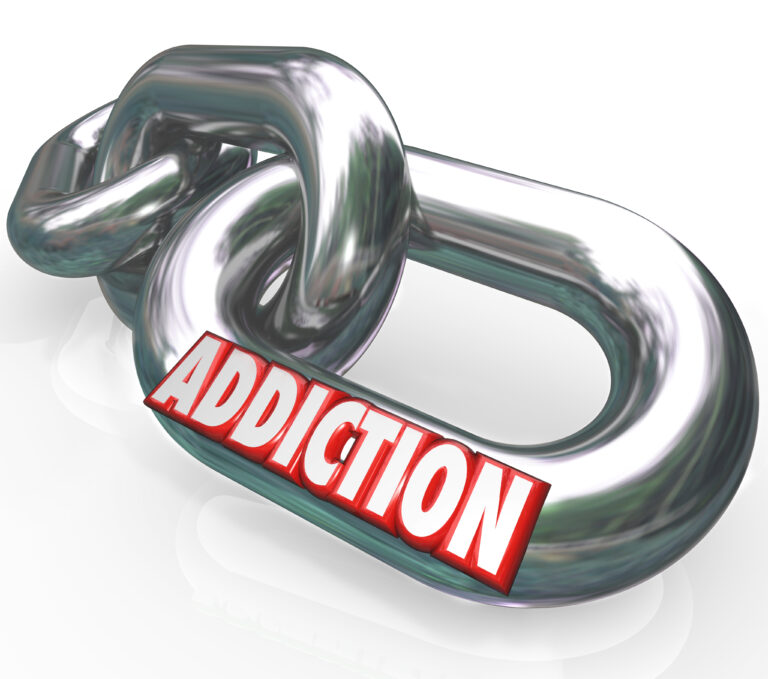Addictions come in many forms – smoking, alcohol, drugs and food. There are also a myriad of treatments for each one. I, of course have my favorites. Personally, I wouldn’t want the drug approaches because of the side effects that can be expected. However, if an individual doesn’t want to go a more natural route, those approaches are better than not taking any action, and continuing the addictive behaviors.
My favorite approaches involve the use of acupuncture and nutrition. Hypnosis has also been shown to be effective.
In a seminar I attended in the early 1990’s the statistics then showed acupuncture to be 81% more effective than any other treatment methods for cigarette and drug use and the recidivism rate (the rate at which they start up again) was only 1% (compared to 11% nationally with other treatment options).
There is a good reason why. Acupuncturists treat the individual as a unique entity with unique emotional and physical demands. Customizing the treatment to the individual’s uniqueness sets us apart from the other options available. For example: if the patient experiences anxiety when withdrawing from cigarettes, different points are used to counteract the anxiety and relax the individual. If the individual experiences anger, irritability, coughing fits, starts to eat a lot or gain weight, we customize the treatment to counteract those problems. If the individual has attempted to quit before this treatment and knows what his or her symptoms were, we treat that from the beginning. Otherwise we customize the treatment to whatever the practitioner expects the individual to experience based on their evaluation. This is true whether the treatment is for alcohol, drug, cigarette or food addictions.
Acupuncture suppresses cravings, works to calm anxiousness, irritability, weepiness, anger and other emotional challenges, and assists the body in detoxifying from the addictive substances. Balancing blood sugar is an important component for alcoholism. It also helps suppress overeating so the individual doesn’t gain weight. No other treatment approaches can do all that.
I once had a doctor say he thought acupuncture was a placebo. It isn’t. One particular patient was a good example of that. A few years ago I was treating a man for the sequel of a stroke. He continued to smoke. I kept urging him to quit, but he refused. Finally one day he came in and announced that he was thinking it was time to quit smoking. I said “Great!” Nothing else was said. So along with my treatment for his condition, I added “stop smoking” points. One week later he came in and said “The oddest thing has happened this week! I haven’t had the slightest desire to smoke all week. I haven’t had a single cigarette!” I wasn’t surprised because I see that all the time when I treat people to stop smoking, and so I told him that. He responded “I didn’t tell you I wanted to stop smoking! I said I was thinking about quitting!” He quit smoking after the acupuncture treatment, and was not even aware he was treated for it!
So much for placebo.
Another time I was down in Mexico with the Flying Samaritans (a group of volunteer doctors who fly private planes down to remote areas of Mexico and treat people who have little or no access to medical care). One day we went to a different town than usual. As we were setting up a clinic in a classroom, someone heard I was an acupuncturist. She asked if I had “tacks” for weight loss. She had had that treatment before and found it quite effective and loved how it suppressed her appetite. When I said “yes” she flew out of the room and came back with a herd of women (54 of them!) wanting acupuncture for weight loss. They got in a line and so did “Mary” the wife of one of the Flying Samaritan pilots. They all got treated.
That night at dinner Mary kept picking at her food (fresh lobster, abalone and yellow fin tuna – the cuisine the town was famous for, and Mary’s favorite). Her husband asked her if she was okay, and she said “yes! I feel great! I just don’t have an appetite”. He turned and went back to his conversation. Some time later he noticed the same, inquired of her, and received the same response. That time, one of the doctors said “Maybe she got one of the doctor’s weight loss treatments!” She responded “No, I got treated for back pain”. I looked quizzically at her and said “No. You were in line for weight loss. You didn’t tell me you wanted a treatment for back pain. You were treated for weight loss!” The guests at the table roared. It was another good example dispelling the “placebo” theory. Another who didn’t know she was treated for an addiction, but had a positive response.
Acupuncture is a popular choice for addiction treatment. An organization, National Acupuncture Detoxification Association (NADA), was formed in 1988 to promote this type of treatment and encourage research to be done on it. There are more than 300 acupuncture-based substance abuse programs in the U.S., many of them funded by governmental agencies.
Nutrition is also used to help addictions. Minerals or herbs are commonly used to treat anxiety, weight gain, irritability, etc. Certain foods (and lifestyles) perpetuate the addictive behaviors, and certain foods can help counteract them. Consulting with a good nutritionist (not a dietician) that has experience with these addictive behaviors and the nutritional remedies for them can really make a positive difference.







